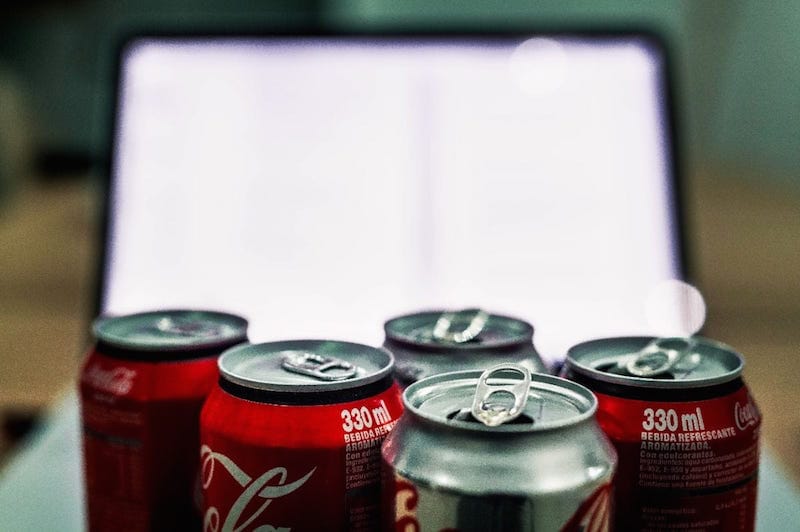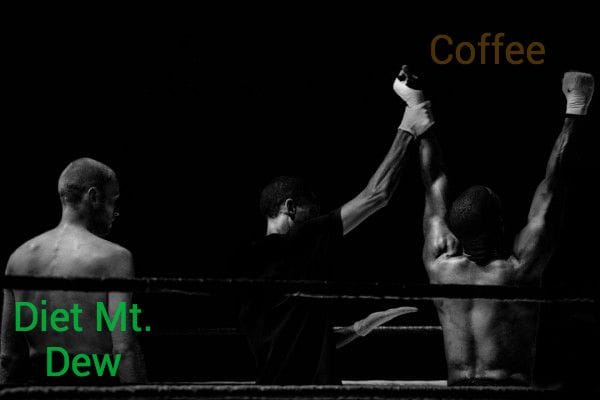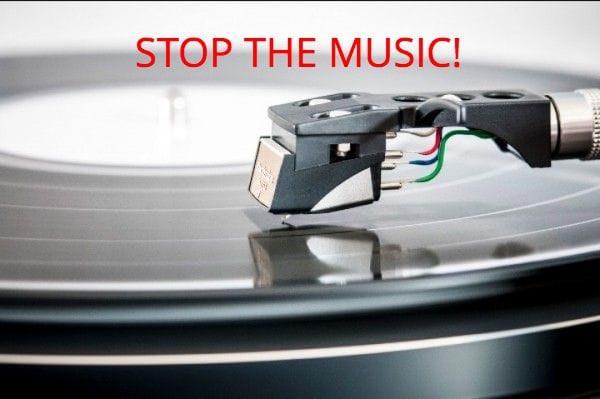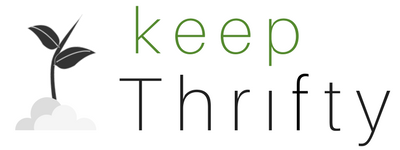
I used to love Diet Mountain Dew. That might not even be a strong enough statement - I was pretty much addicted to it. It was my source of caffeine and one of those self-indulgent “treats” I convinced myself I needed.
I was drinking at least a bottle (20 oz) a day for a number of years and at times was going through more.
Back in the summer of 2014, my wife challenged me to an experiment - to see if I could go our whole roadtrip (10 days) without drinking any.
As a replacement, my wife offered up coffee which has never suited my tastes but I knew the health benefits were there and I love a good challenge so I took her up on it.
Surprisingly the transition wasn’t as tough as I had thought and while I had a bit between the end of the roadtrip and late 2014, I’m proud to say that I haven’t had any in well over a year and don’t see going back.
While the health benefits are reason enough on their own, this is a personal finance blog, so let’s talk about the surprisingly big financial impact this little change had.
Basic numbers
At my worst, I was drinking more than a bottle a day, but let’s be conservative and go with one a day. At $1.50 each, that’s $550 a year.
As a replacement, we bought a grinder and a french press and we buy our coffee beans in bulk from the grocery store. We get the good stuff so we pay $10.96 a pound.

With 100 tablespoons per pound and 4 tablespoons per cup (we like it strong), that gives us a cost of about 44 cents a cup for what I drink at home.
At work, we have a community coffee machine that pumps out medium-strength Folgers all day long. While not my favorite, it does the trick and the cost is a lot less. A 3-lb tub is about $15 which translates to 15 cents a cup for work.
I drink about one cup a day when I’m home and closer to three a day when I’m at work, so I average 45 cents a day for my caffeine intake now.
For current prices, I only spend $160 a year on coffee instead of $550 a year on soda and get the health benefits of not putting toxic chemicals in my body.
From here, let’s take a look both at the impact on how much I save between now and retirement by switching as well as the impact on how much I need to accumulate in my retirement account to fund my caffeine intake.
Impact on amount needed to retire
Most financial aficionados will tell you to follow the 4% rule to determine your target for how much to have in your retirement accounts to allow you to retire.
If you’re not familiar, take 4% of the number in your retirement account - if you can live for the next year spending that amount, you probably don’t need this blog - there’s a good chance you could go retire right now. :)
Determining savings needed from expenses
To work from expenses to the amount needed in your account for retirement, you just reverse it:
- Take your expected annual expenses at retirement
- Multiply that number by 25 (the equivalent of dividing by 4%)
That tells you how much you need in your retirement account in order to retire with a good level of confidence that your expenses will be covered for the long haul if you just take out 4% of the balance of your account each year.
The beauty of the 4% rule is that you can apply it to groups of expenses to calculate the retirement savings burden of each guilty pleasure you want to continue.
Soda retirement burden vs coffee retirement burden
If I want to cover my soda habit in retirement at age 65, I need 25 times the annual expense of my soda habit in my account when I retire.
Based on expected inflation (3%) bringing it to $1400 a year, that’s just over $35,000 I need in retirement savings just to cover soda.
With coffee instead, inflation gets us up to $420 a year, which means I only need $10,000 in savings to cover coffee instead
All told, switching to coffee drops the amount I need in my savings to retire by the difference between these two - $25,000.
In other words:
By switching from soda to coffee, I reduce the amount I need to save for retirement by $25,000
At this point, you’re probably thinking something like this:

While I don’t disagree, we can’t stop here - we’ve only figured out one of the two benefits of the switch and - get this - that was the smaller number :)
Impact on savings
On the flip side, let’s look at what we can do with the money we save between now and retirement by switching.
Again, I’d be spending about $1400 a year on soda by the time I would hit normal retirement at age 65.
Instead, by switching to coffee and investing the difference every year in retirement savings (assume an investment account at 8% return), I’d have an extra $77,000 in my retirement account by age 65.
No, that wasn’t a typo - that’s a seven, then another seven, and then three zeroes.
That’s the beauty of compound interest my friends - putting in a few hundred dollars a year over 33 years gets you a pretty healthy chunk of change at the end!
All together now
So, at age 65, I have an extra $77,000 in my retirement account and I need $25,000 less than I would have if I were a lifelong soda drinker.
That’s a savings swing of $102,000 at retirement just by switching from soda to coffee in my early 30’s.

I think I just heard a couple jaws hitting keyboards.
This is the crazy, powerful math you get when you put interest and long timelines together - small changes get you big numbers.
Let me put it back in perspective - by spending about $30 less per month on my caffeine habit and being smart with that savings, I can have a $102,000 benefit at retirement.
I’d consider getting one of those big novelty checks you see at golf tournaments but we’re pretty minimalist and I don’t think banks actually take those, do they?
What’s in your cup?
If a $30/month reduction now can benefit $102,000 at retirement, what would happen from whittling down expenses by $100, $200, or $500 a month?
This post isn’t really about soda - it’s about the big power of small changes in your financial habits.
Knowing what kind of impact small changes can have on long-term finances, here’s the question for you:
What is one recurring expense that you could really live without?
Tweet me, comment below, or email me - I’d love to hear from you and cheer you on!
